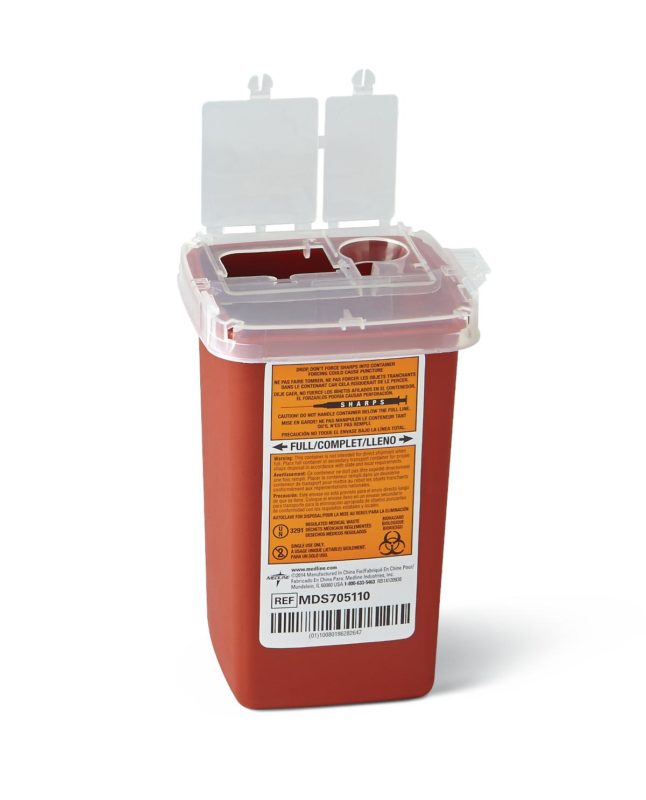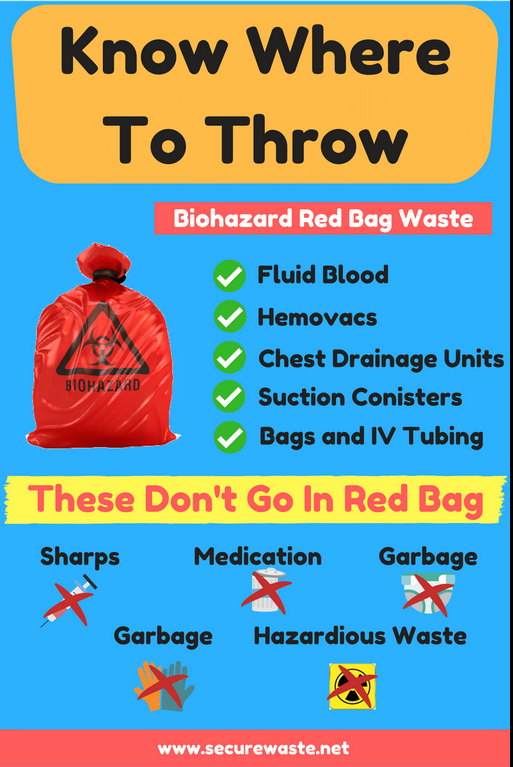Medical Waste Removal Mastery: Where Service Quality Satisfies Health And Wellness Specifications
Medical Waste Removal Mastery: Where Service Quality Satisfies Health And Wellness Specifications
Blog Article
Remain Ahead of Regulations: Specialist Suggestions on Medical Waste Disposal
In a world where the healthcare sector is continuously advancing, it is necessary for medical centers to remain in advance of laws when it concerns the appropriate disposal of clinical waste. With strict guidelines and frequent governing modifications, it can be testing to browse the intricacies of this process. With expert recommendations, centers can ensure compliance and alleviate risks linked with incorrect waste disposal. From understanding the various classifications of medical waste to carrying out the ideal collection and segregation approaches, this conversation will offer actionable suggestions and important understandings to assist centers remain ahead of policies in the ever-changing landscape of medical waste disposal.
Comprehending Clinical Waste Categories
Understanding medical waste groups is vital for appropriate disposal and management in health care facilities. Medical waste refers to any waste created by health care activities that might position a risk to public wellness or the setting. It is essential to classify clinical waste accurately to ensure its safe handling, therapy, disposal, and transport.
There are a number of classifications of medical waste that health care facilities need to be familiar with. The most typical groups consist of infectious waste, pathological waste, sharps waste, pharmaceutical waste, and chemical waste. Each group has specific standards and laws for its proper administration and disposal.
Infectious waste includes materials infected with blood or other physical liquids, such as handwear covers, dress, and lab societies. Pathological waste describes human cells, organs, or body components that call for special delivery and disposal. Sharps waste consists of used needles, syringes, and various other sharp things that can cause injury and transmit infections. Pharmaceutical waste makes up run out, extra, or infected medicines that require cautious handling and disposal. Lastly, chemical waste consists of solvents, disinfectants, and various other chemical materials used in health care centers.
Staying Up-To-Date With Regulatory Adjustments
Staying present with regulatory adjustments is critical for healthcare facilities to make sure conformity and proper monitoring of clinical waste disposal. medical waste removal service. With guidelines regularly advancing, it is important for health care facilities to stay up-to-date to prevent fines, fines, and potential damage to the environment and public wellness
To stay ahead of regulatory adjustments, healthcare facilities need to develop a system for tracking and tracking updates. This can be done by registering for governing newsletters, going to workshops and seminars, and actively taking part in market organizations. In addition, centers need to assign a team member or group in charge of remaining educated and sharing information to pertinent stakeholders.
Routine interaction with regulatory companies is also essential. Healthcare centers ought to establish partnerships with neighborhood, state, and federal firms to guarantee they recognize any type of modifications in policies that may impact their waste administration techniques. This can be done via routine conferences, engagement in public remark periods, and aggressive involvement with regulative agencies.
Additionally, medical care facilities need to take into consideration partnering with waste management companies that concentrate on clinical waste disposal (medical waste disposal services with WasteX). These business are commonly skilled in the most up to date laws and can give support and assistance to make sure compliance
Carrying Out Proper Collection and Partition Methods
To efficiently manage medical waste disposal, medical care centers must develop correct collection and partition techniques in conformity with regulative guidelines. Executing these methods makes certain the secure handling and disposal of potentially harmful products, protects the atmosphere, and minimizes the threat of infections and injuries to medical care employees and the basic public.
Proper collection and segregation methods entail making use of marked containers and identifying systems. Healthcare facilities must provide plainly classified containers for various kinds of clinical waste, such as sharps, transmittable waste, pharmaceutical waste, and non-hazardous waste. These containers must be color-coded and clearly significant to avoid confusion and advertise simple recognition.
Furthermore, medical care facilities ought to educate their personnel on the correct treatments for accumulating and setting apart clinical waste. This consists of informing them on the various kinds of waste, the appropriate containers to utilize, and the value of following standards and regulations. Normal training sessions and refresher courses must be performed to make sure that personnel stay updated on finest techniques.
Furthermore, health care facilities should develop a system for normal collection and disposal of medical waste. This might include partnering with qualified waste monitoring companies that focus on medical garbage disposal. These firms will certainly make visit site certain that the gathered waste is delivered and dealt with in conformity with regulatory needs.
Selecting the Right Disposal Methods

Incineration is among the most reliable and common techniques for disposing of specific kinds of clinical waste, such as pathological waste and sharps. It entails the controlled burning of waste at high temperature levels, reducing it to ash. Nevertheless, incineration can launch unsafe toxins into the air and contribute to air contamination.

Various other disposal approaches consist of chemical therapy, microwave therapy, and landfilling. Chemical treatment involves the use of chemicals to counteract the waste and disinfect. Microwave treatment uses microwave power to heat and sanitize the waste. Landfilling entails burying the waste in a designated landfill area (medical waste disposal services with WasteX). However, landfilling ought to be the last resource because of the possible danger of contamination to soil and groundwater.
Making Sure Compliance Via Documents and Training
After very carefully considering the ideal disposal techniques for medical waste, healthcare centers should guarantee conformity with laws and reduce environmental effect by carrying out effective paperwork and training treatments. This step is vital in keeping a safe and lasting setting for both medical care workers and the general public.

Healthcare employees that deal with medical waste needs to receive suitable training pop over to these guys on waste segregation, handling, and disposal procedures. By supplying comprehensive training, healthcare centers can encourage their team to make informed choices and reduce the danger of inappropriate waste disposal.
Final Thought
Finally, remaining ahead of laws in clinical waste disposal is essential for medical care centers. medical waste removal services. Understanding the various groups of medical waste, staying upgraded with regulative modifications, applying correct collection and segregation approaches, selecting the suitable disposal approaches, and making sure conformity via documents and training are all essential steps. By complying with these standards, healthcare companies can effectively dispose and manage of medical waste in a accountable and safe way
From comprehending the various classifications of medical waste to carrying out the ideal collection and partition methods, this conversation will certainly give valuable insights and workable tips to assist centers stay ahead of policies in the ever-changing landscape of medical waste disposal. - medical waste disposal services with WasteX
The most typical groups include contagious waste, pathological waste, sharps waste, pharmaceutical waste, and chemical waste. Health care facilities need to provide clearly classified containers for different types of medical waste, such as sharps, contagious waste, pharmaceutical waste, and non-hazardous waste. Medical care centers should develop a thorough system to tape and track all aspects of clinical waste disposal, including kinds of waste created, quantities, and disposal approaches made use of. Medical care employees who manage clinical waste should receive proper training on waste partition, dealing with, and disposal procedures.
Report this page